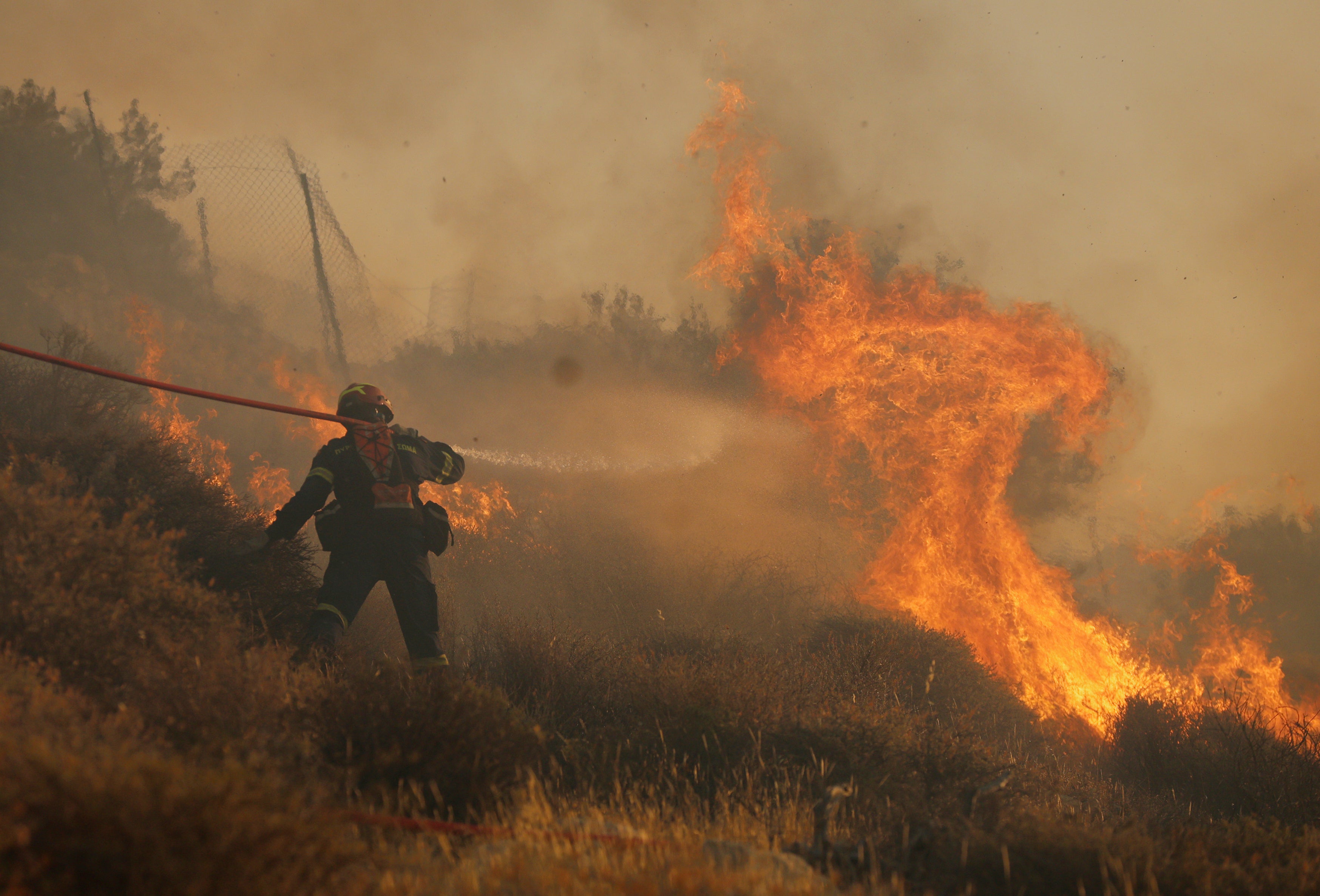The Greek government has urged outdoor labourers to down tools and closed the Acropolis as the country faces its third heatwave of the summer.
The country’s Ministry of Climate Crisis and Civil Protection warned that temperatures will peak between Tuesday and Friday, with highs of 43C in some regions.
The mercury will hit 42C in Central Macedonia, while temperatures of 40C are expected in Athens. On the eastern Aegean Islands, temperatures are also expected to hit 40C.
Fire services and authorities have been placed on high alert, with labourers told to pause outdoor work during the peak of the afternoon heat.

The government has advised tourists and residents to stay cool by avoiding heat and crowds, use fans or air conditioning, wear light breathable clothing, eat light meals, drink plenty of water, and avoid alcohol.
The Acropolis, Greece’s most visited ancient site, will be closed for five hours from midday on Tuesday and Wednesday.
Tourists were spotted sheltering in air-conditioned restaurants and stores on Tuesday, while the labour ministry advised employees with underlying health issues to work remotely.
The ministry also ordered couriers, food delivery riders and builders in Athens to pause work from midday until 5pm.
.jpeg)
The heatwave is part of a wider trend across southern Europe, where soaring temperatures have fuelled wildfires in France, Albania and Spain.
Greece, a country that attracts millions of tourists every year and is known for its hot, dry summers, has been increasingly affected by climate change.
In recent years, it has suffered from longer and more severe heatwaves, as well as destructive floods and wildfires.
Last month, Western Europe sweltered in another severe heatwave that left many dead and triggered forest fires and health alerts across the region.
Thousands were evacuated and dozens injured in wildfires across France, Spain, and Greece.
In June, a massive wildfire scorched forests and olive groves on the Greek island of Crete, while a large fire also started south of Athens due to extreme heat.
Last year was the warmest year on record globally, with temperatures exceeding 1.5°C above the pre-industrial era for the first time.
Research published last week showed that the soil surface temperature around Athens rose in some places by as much as 10°C since July 2024 after fires destroyed vegetation.
The heat is expected to ease from Sunday, according to the Greek meteorological service.

